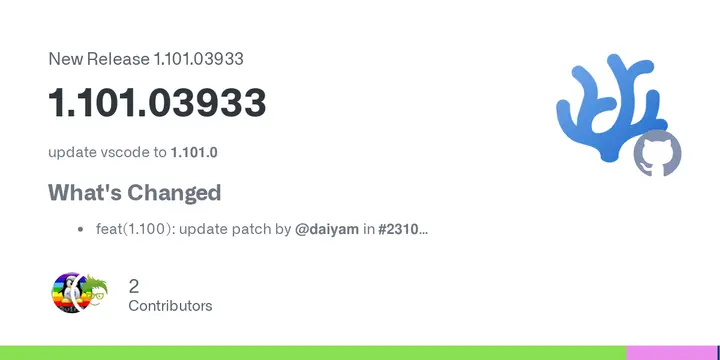Key Updates in VSCodium 1.101.03933:
- Patch Improvements: Continuous updates and enhancements to existing patches.- Rebranding: A new look for reh-web resources.
- Cross-Platform Availability: Versions are now available for various system architectures.
- Prebuilt OpenSSL: Integration of prebuilt OpenSSL for improved security.
- Bug Fixes: Resolved issues with the Windows update link and other explicit URLs.
- Update Checks: Automatic update checks are now enabled for users.
- GCC Specification: The ability to specify the GCC version in the sysroot for better compatibility.
- Chat Features: Chat functionalities are now turned on by default for user convenience.
- Node Version Upgrade: The application now uses Node version 20.19, enhancing performance and features.
- Wayland Client: A native Wayland client is implemented for better compatibility with Linux environments.
Additional Notes:
This release includes contributions from new developers, such as @3v1n0, who made their first contribution related to the native Wayland client. The full changelog details the extensive list of changes and improvements made since the previous version, showcasing the ongoing development and commitment to enhancing the VSCodium experience.With these updates, VSCodium continues to improve its functionality, user interface, and compatibility across platforms, making it a strong alternative to traditional code editors. Users are encouraged to explore the new features and improvements to maximize their coding efficiency
VSCodium 1.101.03933 released
VSCodium 1.101.03933 has several updates, such as improvements to patches, a new look for reh-web resources, versions available for all types of systems, the addition of prebuilt OpenSSL, fixes to the Windows update link, turning on update checks, specifying the GCC version in sysroot, and chat features being turned on by default. It also includes updates to patches, uses Node 20.19, and has a native Wayland client. Additionally, it includes updates to patches, the utilization of Node 20.19, and the implementation of a native Wayland client.


